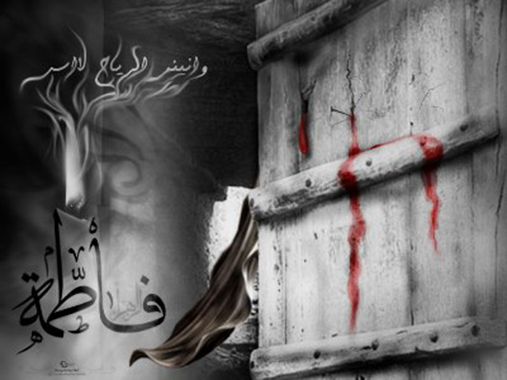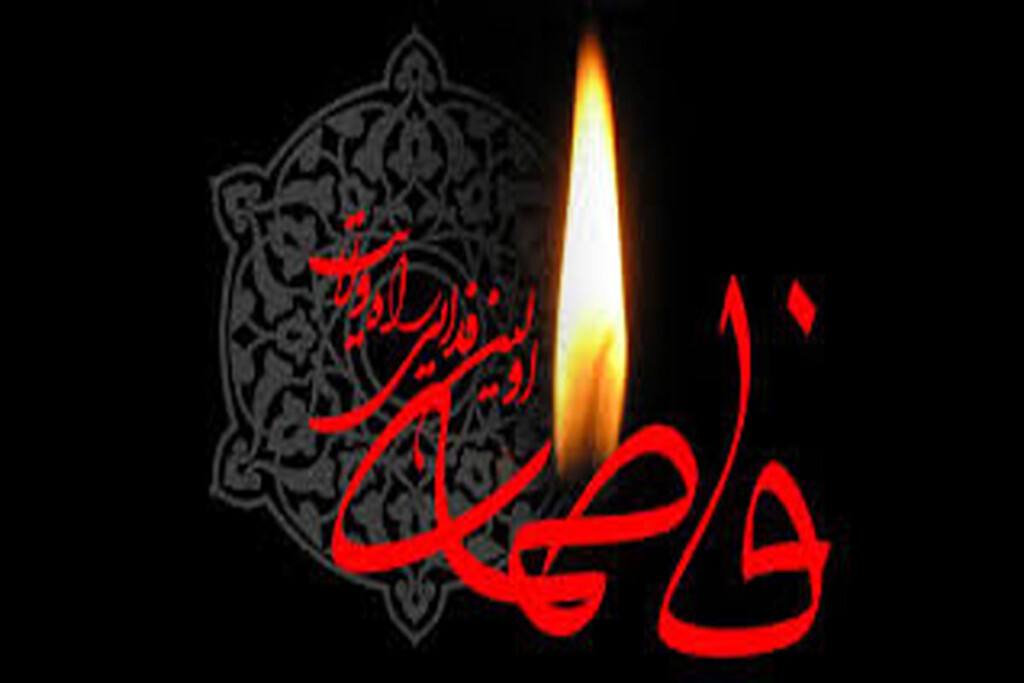
Fatimah (peace be upon her) is Allah’s beloved
Fatimah (peace be upon her) has endowed with honor and grand dignity; the honor no one could achieve it as Fatimah (peace be upon her) did. Expressing all her aspects of her character is not feasible; therefore, some points are stated:
1. She is Allah’s beloved:
She is the pure servant of Allah, and is always in worship and contact with Him in order to give her servanthood superiority over her other positions, so that no luxury, effort, or attachments could prevent her from fulfilling her conscious duty. As that the Prophet (peace be upon him and his descendants) appreciated her and praised her position was due to the fact that she was pious and in contact with Allah, and not because she was the Prophet’s daughter.
Prophet (peace be upon him) said: Fatima (AS) is the best companion in the path toward serving and worshiping Allah. (Bihar al-Anvar, vol.43, p.11)
Fatimah’s generosity, thought, and efforts are all for Allah’s pleasure. Fatimah (peace be upon her) is so dissolved in the Divine grandeur and majesty that she devotes all her things in His way: her position, her rank, her silver bracelet, her wedding dress, the screen of her house, etc. In this case, shouldn’t she be the dear of Allah?
2. She is the Prophet’s dear:
The Prophet (peace be upon him and his descendants) knows her as a part of his body and soul, as he says,
Whoever loves my daughter, Fatima (AS), will be with me in heaven, and whoever holds grudges against her will reside in hell. (Bihar al-Anvar, vol.27, p.116.)
In the age of Ignorance and the hard times of his Prophethood, she was as a mother to her father in Mecca. She cleansed the thorns and dust that the people had thrown over the head of the Prophet (peace be upon him and his descendants) with her little hands and soothed him. Sometimes, she would cry for his loneliness and caressed for his beaten body.
She was her father’s consular at the time of Hijra, she was so dear for him in Medina that Ayesheh stated, “There was no one dearer than Fatimah (peace be upon her) to the Prophet (peace be upon him and his descendants); he attended her house every day and asked about her mood repeatedly. When he was setting for trips, Fatimah (peace be upon her) was the last one, visited at the time of departure by him, and at the time of arrival, Fatimah (peace be upon her) was the first one, visited” .
Owing to her dignity and action, purity and sincerity, she reached to a rank that the Prophet (peace be upon him and his descendants) stated, “ ابوهافداها ” [May his father be sacrificed to her].
Prophet (peace be upon him) said: Fatima is of my flesh, who is the light of my eyes and the warmth of my heart. (Al-Shaykh al-Saduq, Al-Amali, p.486. )
Once, the Prophet (peace be upon him and his descendants) saw Ali and Fatimah (peace be upon them), grinding wheat. He asked, “who gives her place to me to turn the mill?” Ali said to Fatimah (A.S), “rise, ‘cause you are tired?” and then the Prophet (peace be upon him and his descendants) sat on her place and continued her job.
Even on his point of death, she was closest to the Prophet (peace be upon him and his descendants). The Prophet (peace be upon him and his descendants) whispered in her ear, “Dear Fatimah, sit beside me, and recite Qur’an”. Yes, the whispers and Qur’an recitation of Fatima (peace be upon her) could sooth the Prophet (peace be upon him and his descendants).

3. She is Ali’s wife:
As stated before, if there was no Fatimah (peace be upon her), there would be no one deserving to be her husband. Her marriage was determined by the Word of Revelation. She was a wife, kind and the perfect symbol of confidant with her husband…
Prophet (peace be upon him) said: I did not give permission for Fatima (AS)’s marriage until I received Allah’s command as to her marriage. (Al-Shaykh al-Saduq, Uyoun Akhbar Al-Ridha, vol.2, p.59.)
She never shattered her family estate under the pretext of ornament and did not make the life bitter for her husband for the false worldly allure.
They had a house, apparently made of clay; a house, void of ornaments, but full of purity, sincerity, faith, piety, and chastity. Their dishes consisted of wooden and earthen bowls, but their soul bowls were full of grandeur and overfilled with cordiality and affection.
4. Martyrdom of Lady Fatimah al-Zahra (a):
The martyrdom of Lady Fatimah al-Zahra (a) is one of the common and lasting beliefs among Shi’as, according to which Lady Fatimah (a), the daughter of the Prophet of Islam (s), did not die a natural death but was rather martyred due to injuries inflicted to her by some of the companions of the Prophet (s). The Sunnis consider her death due to grief and sorrow over the death of the Prophet (s); but the Shiites consider ‘Umar b. Khattab to be the main cause of her martyrdom and mourn for Lady Fatima (a) during the Fatimiyya Days. According to some sources, Muhsin (a), the unborn child of Fatima (a) was also aborted during the incident when she (a) received injuries.
Shiites have brought arguments from some points for the martyrdom of Lady Fatimah (a), e.g. according to a narration from Imam al-Kazim (a), the title of “Siddiqat ash-Shahida” has been used for Lady Fatimah (a). Also, Muhammad b. Jarir al-Tabari, a Shiite theologian of the third/ninth century, in the book Dala’il al-Imama, has narrated a narration from Imam al-Sadiq (a) in which the reason for Fatimah’s (a) martyrdom is mentioned to be her abortion due to major trauma.
Shiite and Sunni sources have given details of the events leading up to the death of Lady Fatima (a); including the attack on the house of Lady Fatimah (a) and Imam Ali (a), the abortion of her unborn child, as well as the slapping and flogging of her. The oldest source cited by the Shiites in this regard is the book of Sulaym b. Qays al-Hilali, written in the first/seventh century. Shiites have also documented the martyrdom of Fatimah (a) in narrations that are also found in Sunni sources. The book al-Hujum ‘ala bayt-i Fatima (a) has quoted narrations from 84 narrators in Sunni sources.

